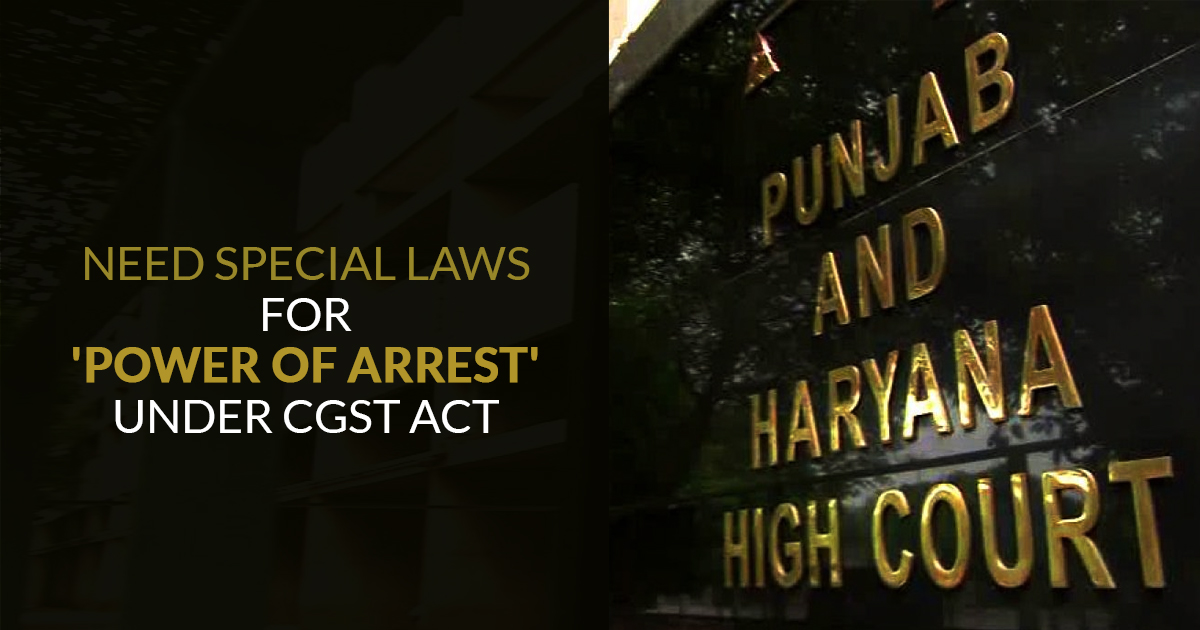
Haryana and Punjab High Court had observed initially that parliament was authorized under the constitution to have a problem solving mechanism post incorporation of the Central Goods and Services Tax (CGST) Act after 4 years.
The force came as the Judge let go of the decision of Justice Rajan Gupta and Justice Karamjit Singh has cancelled the security appeal furnished through the Narinder Chugh with respect to central India along with other respondents in the alleged GST theft event. Towards the other subjects, the Bench was told that the sum of GST evasion for the case was Rs 7,83,15,309.
The Bench declared that it was as if the prima facie view that the particular law has been imposed for the tax recovery beneath enabling procurement which consists in section 4 of the code of criminal procedure (CrPC). The court was also of the prima facie view that Parliament was empowered under Article 246A of the Constitution to impose some specific laws with respect to Goods and Services Tax (GST).
“The legislation enacted is for levy and collection of taxes on the supply of goods and services having special provisions for recovery of revenue. It is a fiscal matter, a distinct procedure appears to have been evolved by Parliament by virtue of a special enactment, which is permissible under Section 4 of the CrPC,” the bench stated.
It was stated that it was given prior to the bench post the applicant the vires of section 69 and 132 of the Central Goods and Services Tax Act, 2017. He also prayed for interim protection during the due of the writ applicant as non-bailable warrants have been provided through the competent authority. His anxiety was that he might be taken in custody as he seems prior to the council.
Coming on the bench a senior counsel upon the applicant on the grounds indeed raised various problems, specifically the powers of the statutory to impose laws beneath section 246A. He indeed referred to the plan of CrPC to say that the evasion beneath the CGST will be investigated as per the plan of the code, with respect to the plan contrary in the CGST act. “Since we are dealing only with the prayer for interim relief at present, we do not intend to express any final opinion on the issue,” said the judges